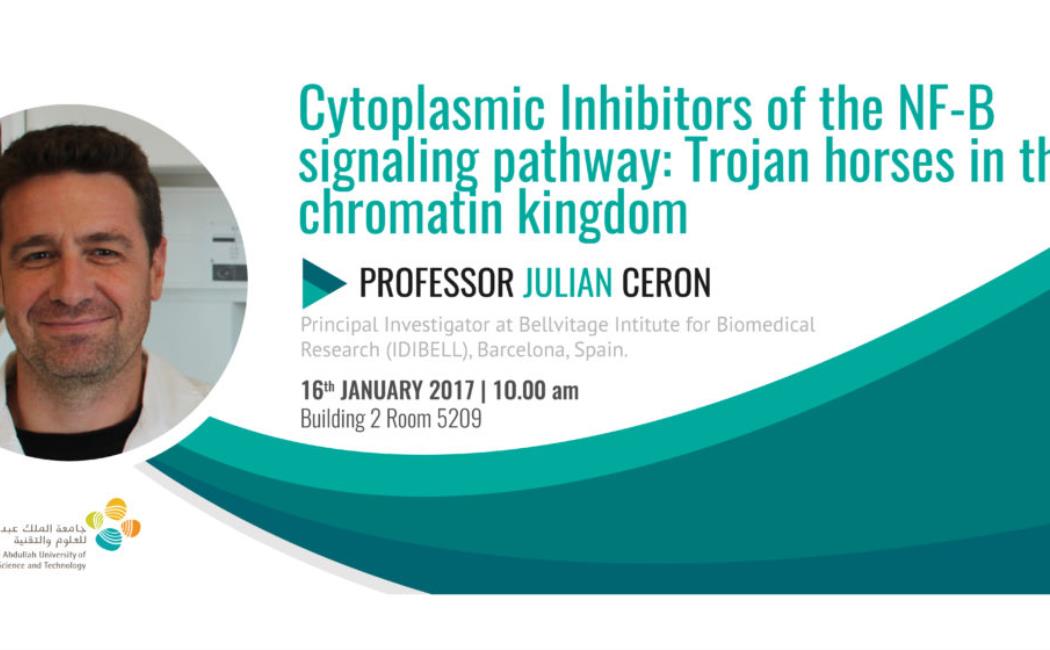
Cytoplasmic Inhibitors of the NF-B signaling pathway: Trojan horses in the chromatin kingdom
The nuclear factor kappa B (NF- B) signaling pathway regulates many biological processes, having a great influence in inflammation, immune response and cancer. The negative regulator of NF- B, I B (for Inhibitor of kappa B), retains the transcription factor NF- B in the cytoplasm, thus, preventing access to its targets in the nucleus. There are recent evidences pointing towards an NF- B independent role for I B in the nucleus, controlling gene expression in mice (Mulero et al. Cancer Cell 2013). Since there is no NF- B gene but two I B homologues in C. elegans, this nematode arises as an interesting model to investigate the nuclear functions of I B proteins. To date, our results suggest that both I B proteins function in chromatin regulation in C. elegans and that those functions can be conserved in mammals and related to embryonic development and cancer progression.
Biosketch: Prof. Ceron is a principal Investigator at Bellvitage Intitute for Biomedical Research (IDIBELL), Barcelona, Spain. He completed his PhD in Biology from Neuroscience Institute, Alicante, Spain. He did his first Postdoc at IGBCM, CNRS Strasbourg, France and his second postdoc at Department of pathology, Harvard University, USA. During his PhD and Postdoctoral studies, he has been awarded MEC, EMBO and Development Journal Fellowships. Prof. Ceron’s lab mainly focuses on modeling human diseases in C elegans . Using this nematode as a model system, the lab is studying the molecular mechanisms of diseases such as Retinitis pigmentosa and cancer. They are also interested in understanding the role of proteins that modulate chromatin state in different tissues and conditions to understand cancer related processes.